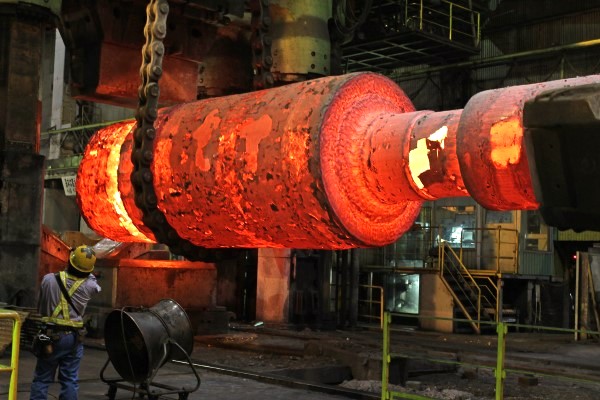On November 21, the Japan Atomic Industrial Forum (JAIF) released an overview of the results of its most recent annual Fact-Finding Survey of the Japanese Nuclear Industry. The survey covers fiscal year 2018 (ended March 2019), in which nine nuclear power plants (NPPs) were in operation throughout the country.
Questionnaires were distributed to a total of 350 for-profit companies engaged in the nuclear power field, including JAIF’s member companies, seeking information on their expenditures, sales and numbers of employees. Valid responses were received from 251 companies (eleven electric power companies, 228 mining and manufacturing firms, and twelve trading firms).
Although the business environment for nuclear-power and related industries in Japan showed signs of improvement from its deteriorated state as a result of the accident at the Fukushima Daiichi NPPs in March 2011, with new regulatory standards being met and some reactors being restarted, nuclear-related sales and order backlogs by mining and manufacturing firms declined 9 percent and 11 percent, respectively, from the previous year. As for nuclear-related sales by category of industrial focus, backend dropped 23 percent, and decommissioning 25 percent.
Meanwhile, nuclear-related expenditures by electric power companies rose substantially by 12 percent from the previous year. By expenditure item, capital investment increased by 40 percent, and fuel and materials costs by 28 percent. The number of nuclear-related workers grew slightly from the previous year in both the mining and manufacturing sector and at electric power companies.
Regarding business sentiment in industries related to nuclear power, most survey respondents (responding in FY19) described theirs as “bad” (80 percent). Those expecting it to be worse in one year (in FY20) increased from 10 percent in the previous survey to 24 percent.
In response to a multiple-answer question about the effects of the shutdown of the country’s NPPs, many respondents continued to point to reduced sales (58 percent) and difficulties in maintaining and continuing their technological capabilities (56 percent). Most of those choosing the latter cited decreased on-the-job opportunities (83 percent), followed by difficulties in securing employment (31 percent). Dilution of technology and know-how by other company’s withdrawal, dissolution, etc. (26 percent) rose 9 points from the previous year.
In addition, the most frequent response to a multiple-answer question on what specific efforts were being made to maintain their own technology and know-how was “strengthening education and training,” chosen by 77 percent.
As for the elements necessary to successfully maintain the domestic nuclear power industry, the most common answer selected was the consistent promotion of nuclear policy by the government, at 73 percent, followed by restoration of public confidence in nuclear power, at 59 percent, and early restarts of NPPs and stable NPP operation, at 58 percent.
Regarding issues in dealing with and doing business overseas, the most frequent response was dealing with country risks (such as changes in political and economic circumstances), followed by responding to regulations and standards overseas.












